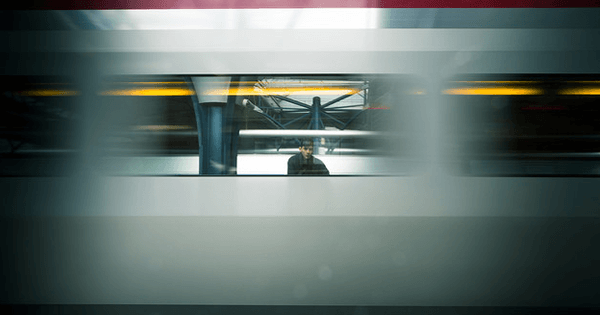
When the train from Paris Saint-Lazare to Caen shifted direction and the hard-shelled suitcase fell from the luggage rack near the vestibule, I was among the dozen or so passengers nearby who leaped from my seat in a state of unalloyed panic. The collective sigh of relief and exchanged glances of solidarity at the sight of the suitcase unthreateningly splayed on the floor made plain the extent to which we have all been set, indefinitely, on edge.
It was the night after a deranged, 31-year-old French-Tunisian man had mowed down hundreds of Bastille Day revelers along Nice’s splendid pedestrian waterfront, killing 84. It was the third monstrously spectacular terrorist attack in just 18 months in this nation the size of Texas, but I was still thinking of smaller horrors, like the June 14 double homicide in the Paris suburb of Maganville. The perpetrator, a 25-year-old French-Moroccan man who claimed to have responded to an ISIS appeal to “kill non-believers at home with their families,” butchered a police officer and his partner and then broadcast himself live on Facebook as he debated what to do with the couple’s infant child. Police finally killed him before he reached a conclusion, but not before he urged more lone-wolf attacks on “infidels” by whatever means prove handy.
Although I’ve cut the Métro out of my life entirely and try to avoid celebrating crowds, I don’t own a car and sometimes have to travel by long-distance rail. After last November’s roving massacre by a team of ISIS terrorists in Paris, I was on a train about an hour outside the city when a rock smashed a side window and cracked it. The sound was explosive, and many passengers screamed. My thoughts skipped to the incident last summer that should have been a wake-up call, when on a packed Thalys train headed for Belgium, a trio of holidaying American and British soldiers heroically prevented a slaughter.
France’s leaders oscillate between reminding us that we must never allow the murderers to rob us of our way of life and conceding that times have in fact changed, and we must acclimate ourselves to living with terrorism. But how to reconcile such contradictory imperatives? Gazing lazily out the window on a train, losing yourself in a newspaper and a glass of beer on a café terrace, reveling in the selfless unity of a concert—these are tiny quotidian pleasures that have been, at least for the foreseeable future, irredeemably sullied. I can no longer wear headphones on the train, and I chastise myself for dozing. Am I overreacting? Just when I think I might be, reality is there again with a check. Even as I was writing this post, a 17-year-old Afghan migrant wielding an axe and a knife attacked passengers on a Bavarian commuter train, injuring four and leaving dozens of others in shock before he was killed by police. No matter how high-minded I want to be, I cannot unknow this.
I am ashamed of the way I have come to attempt to read (some of) my fellow travelers’ faces, monitoring the amount of time they’ve spent in the bathroom, studying their moods. Even if nothing more than this were to transpire—and that is deeply wishful thinking, since there will almost certainly be more death—something significant has already been taken away.

